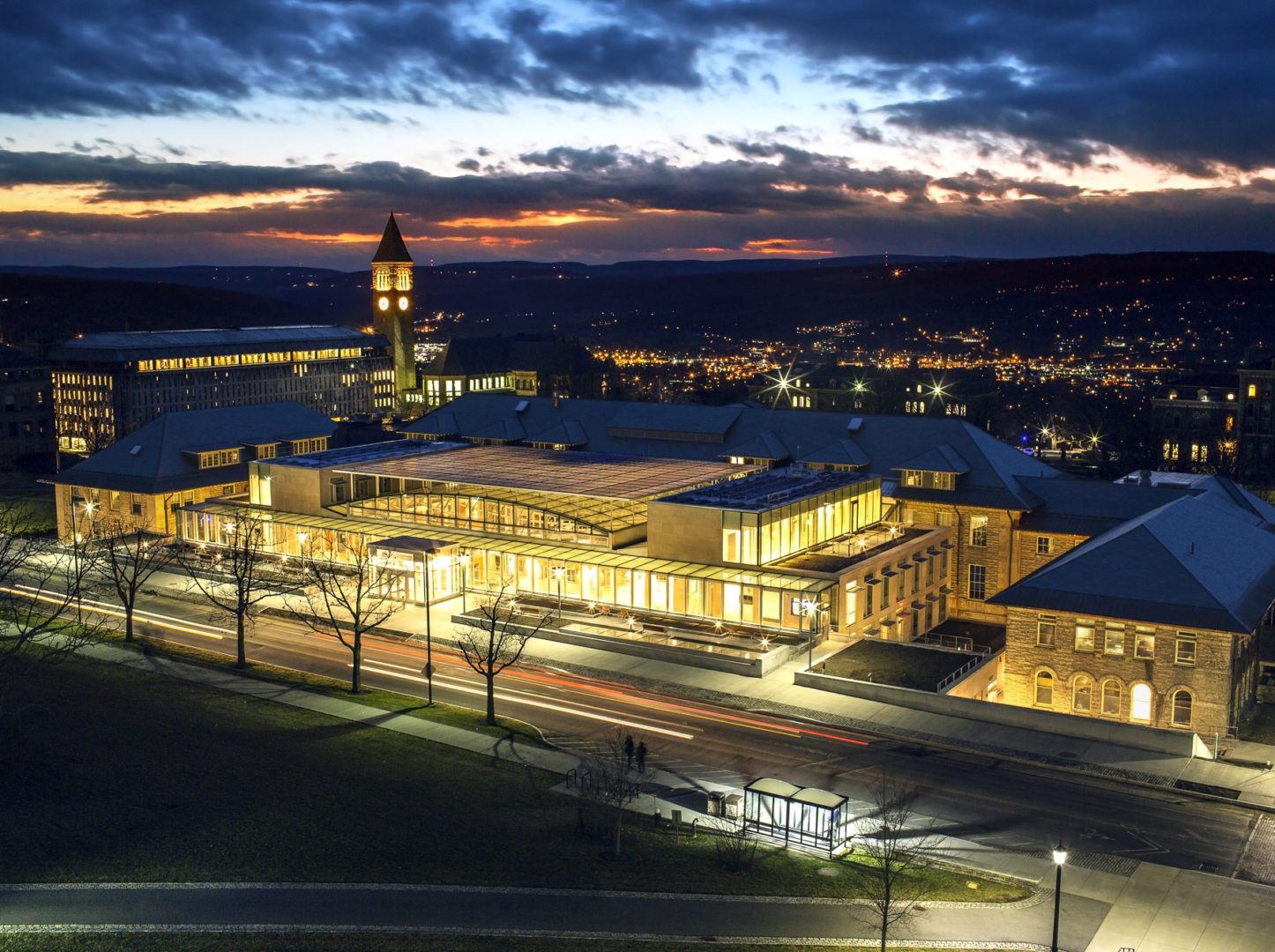How can mushrooms be part of sustainable building construction? Felix Heisel, assistant professor in the College of Architecture, Art, and Planning (AAP), has one answer.
Heisel, director of the AAP Circular Construction Lab, and Faculty Fellow with the Cornell Atkinson Center for Sustainability, arrived at Cornell in January 2020 and knows that collaboration across disciplines can spark ideas that change the world.
Bringing together Cornell experts in the fields of architecture, biology, ecology, engineering, planning, business, and more, several of Heisel’s current research projects are focused on finding ways to help in the fight against climate change: from creating new building materials that are biodegradable to influencing local policies around deconstruction.
“The possibility to influence change from Cornell out into the world is what drives us,” Heisel says. “I get to learn with our incoming generation of architects about the most pressing issues of our time, like climate change, and what role we play in that bigger global picture.” That role, Heisel says, is “immense and important.”
Heisel notes that 40% of all global carbon dioxide emissions come from the built environment—from the production of construction materials themselves to the operation of buildings. He teaches “circular construction,” which acknowledges that the structures we build today are not going to last forever and plans for their long-term impact on both the environment and economy, taking a holistic perspective, Heisel explains.
“How can we design buildings with the knowledge in mind, that buildings are only in service for a specific amount of time?” he says. “I’m really happy that I get to ask these questions with the first-year students at AAP, to plant the seed of how important these thoughts are.”
Heisel and the 15 students working in the Circular Construction Lab—together with collaborators across four Cornell colleges and several disciplines—are working to discover and cultivate alternative materials and resources to build with from the start. One such project is looking into potential uses for mycelium, the vegetative part of fungi, in creating building materials. The mycelium, Heisel explains, could act as a sort of adhesive that would be used alongside agricultural and other waste products to make new biodegradable building materials. While some team members are growing different strains of mycelium to test for strength and durability, others are developing architectural applications for these potential fungi-based materials.
“The hope is that we can all bring our expertise and meet somewhere in the middle,” Heisel says. “One of the goals is to come up with a matrix that tells us: This type of mushroom strain is ideal for X type of application.”
This project received an Academic Venture Fund grant through the Cornell Atkinson Center over the summer, and Heisel is excited by the team’s early progress. “We’ve made quick decisions, and our collaborators are now cultivating 40 different mycelium strains in petri dishes,” he says, which will then be characterized to find potential candidates for further study.
Heisel also sits on the Circularity, Reuse, and Zero Waste Development (CR0WD) task force, a new collaboration between AAP faculty, experts from across the region and state, and the City of Ithaca. The goal, he says, is to develop new policy strategies that shift away from building demolition and toward building deconstruction. This approach allows many more materials to be salvaged and reused when a building is being repaired or torn down, rather than ending up in a landfill.
“Everyone needs to try to pull together to achieve these goals,” Heisel says, adding that he’s met many like-minded people in Ithaca who are open to trying new things and learning about possibilities. “We can pull out ideas, but we need the support of the whole sector to drive this change,” he says.
All of this exciting research, Heisel adds, is made better not only by radical collaborations across Cornell and Ithaca, but also the exceptional Cornell students he’s met, who are always eager to learn.
“The enthusiasm that we have here in our student body is extremely supportive,” he says. “To have the chance to deal with these young bright minds that are willing and interested to make such bold changes: That is something that motivates me.”
While Heisel acknowledges that much work still needs to be done to make a lasting, tangible difference in the climate crisis, he is encouraged by the students who ask questions and dedicate themselves to learning, the colleagues who spark new ideas, and the community members who are open to change.
“I have the feeling we might be able to do this, to save the planet,” Heisel says. “But nobody will change the world alone. We need everyone to be part of that.”


